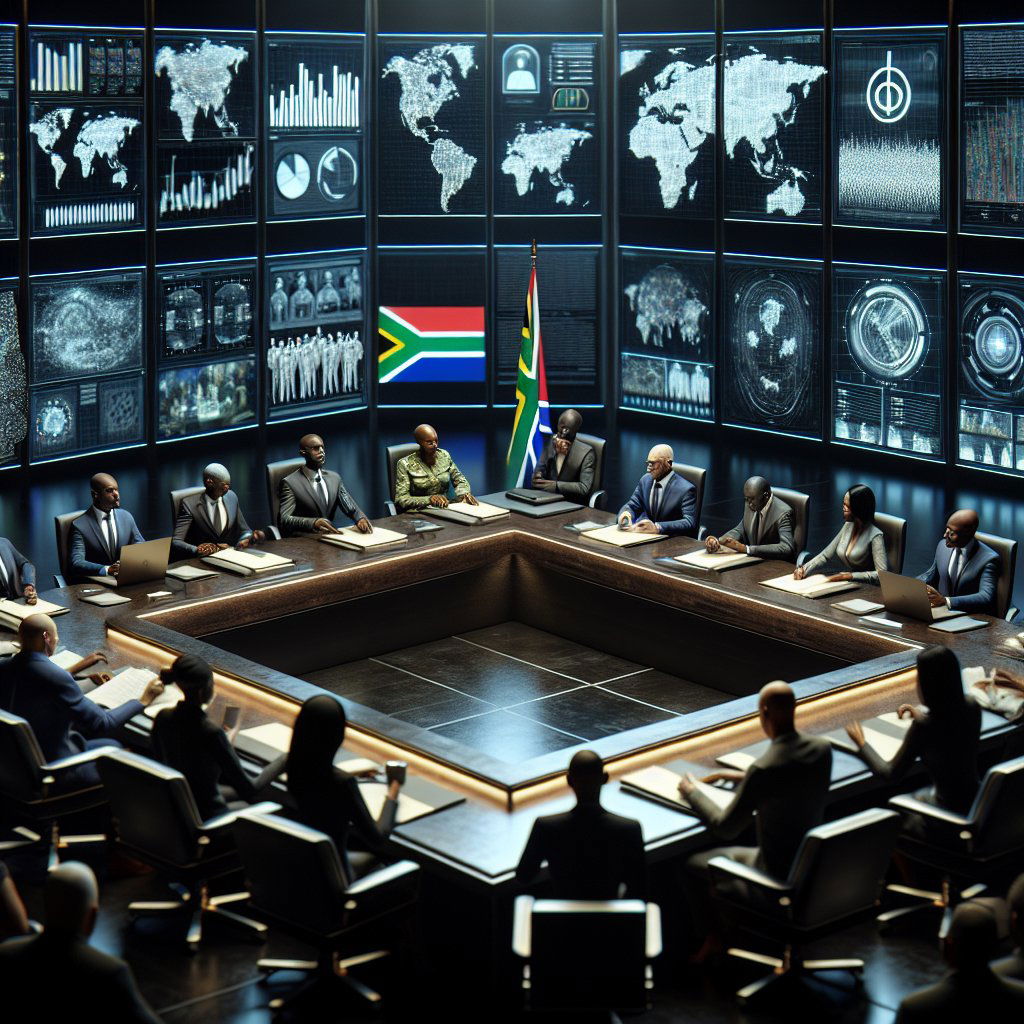Image created by AI
South Africa's Cabinet Deliberates Future of Israeli Embassy Amid Human Rights Concerns
The South African Cabinet remains in contemplation over the course of action regarding the Israeli Embassy in the country, eight months after the National Assembly passed a resolution for its closure. The decision to potentially shut down the embassy is integrated with the nation's stance on human rights, especially in the context of the enduring conflict between Israel and Hamas.
Minister of International Relations and Cooperation, Ronald Lamola, has indicated that the resolution’s execution is pending Cabinet’s thorough review and subsequent directive. Lamola's spokesperson, Chrispin Phiri, has affirmed that the Department of International Relations and Cooperations (DIRCO) is prepared to follow through on the mandate set forth by the Cabinet once a decision is reached.
However, despite the resolution's passage in the National Assembly, the steps toward the actual closure have languished. The decision is enmeshed in the complexities of South African politics, particularly as the country operates under a Government of National Unity (GNU), which includes political factions that have previously opposed the motion to close the embassy.
Political analyst Sandile Swana has highlighted South Africa’s prominent role in the international movement against what is seen by many as the mistreatment of Palestinians by the government of Israel. Swana acknowledges that the delay may partially be a strategic attempt to avoid coming across as unduly severe in diplomatic conduct. Despite the hesitance, Swana speculates that the embassy's closure remains a strong possibility, largely due to the global support against the US’s stance, which continues to impede the two-state solution proposed to resolve the Israel-Palestine dispute.
The prolonged evaluation of the National Assembly's resolution by the Cabinet underscores the gravitas of diplomatic relations and their intersection with human rights advocacy. The outcome of Cabinet's decision will reverberate through South Africa's foreign policy and its moral positioning on international conflicts.










